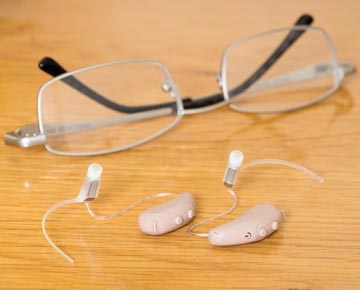We've all seen patients with post-op delirium. They're disoriented and confused immediately after surgery. They have trouble focusing and are unable to participate in their care as they're either restless and agitated or too drowsy to pay attention. The visible short-term effects of delirium may fade fairly quickly, but research now shows that the risk of mortality increases for several years following an episode. Patients who experience delirium are also at increased risk of falls and long-lasting cognitive decline, including dementia. Once home, the hidden symptoms of delirium may make it difficult for the patient to manage their medications and care for their wounds, impeding a successful recovery.
About half of your patients who are 65 years or older will experience some level of delirium after surgery. The bad news? There are no medications that prevent or shorten delirium. The good news? The American College of Surgeons' National Surgical Quality Improvement Program's (NSQIP) online risk calculator and the Trail Making Test Part B (TMT Part B) are easy tools that help identify patients most at risk for post-op delirium. You can use that information to bolster their health before surgery and ensure post-op actions (like reorientation and mobilization) are prioritized to prevent delirium. Let's take a quick look at these screening tools.
- NSQIP risk calculator. This free online tool estimates a patient's risk of suffering surgical complications based on several baseline variables, including age, sex, BMI, physical function and comorbidities (riskcalculator.facs.org). The calculator combines a patient's baseline risk with the anticipated physical insult of specific surgeries, and calculates an overall risk percentage score for serious complications. Patients with NSQIP risk scores of 21% or greater are at risk of experiencing moderate to severe delirium, with higher numbers associated with more severe forms of the condition.
- TMT Part B. There's a proven association between pre-op executive function — a measure of attention level and problem-solving abilities — and incidence of post-op delirium. This test, which measures executive function, consists of 25 circles containing numbers (1 to 13) and letters (A to L). Patients must draw a line connecting the circles in ascending order, alternating between numbers and letters. (1-A-2-B-3-C and so on). The longer it takes patients to complete the test, the worse their executive function; an average score is 75 seconds and a deficient score is longer than 273 seconds. The screening tool is available as an easy-to-administer iPad app (osmag.net/QKJwG7).
The higher the scores of the 2 tests, the higher the risk of the patient experiencing severe delirium after surgery. Using the tests in combination is not a perfect predictor of how severe post-op delirium will be, but it's an improvement over current screening methods, which focus on older adults with dementia-level cognitive impairment. Those patients are indeed at the highest risk of suffering severe post-op delirium, but focusing on those individuals ignores countless others who are at moderate risk, and who need the same compassionate care during their recoveries.
.svg?sfvrsn=be606e78_3)

.svg?sfvrsn=56b2f850_5)